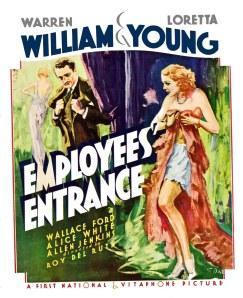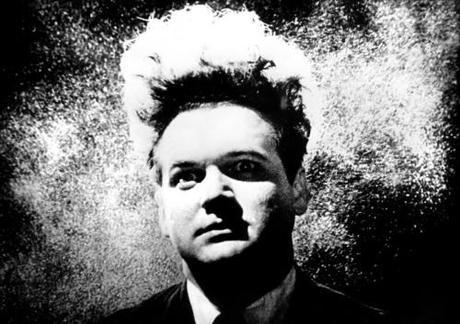Friday, April 11, 2014:
For the first full day of movies, my friends Jessica (Comet Over Hollywood) and Carley (The Kitty Packard Pictorial/The Black Maria) decided to kick things off with 1944′s On Approval. Knowing that On Approval was playing in the smallest of the theaters, we tried to get there early, but we weren’t early enough so we couldn’t get in.
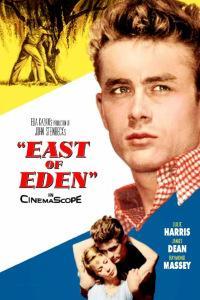
After East of Eden, it was time for me to get in line for Grey Gardens. Grey Gardens was one of my big “must-sees” for the festival. It’s one of the most absolutely compelling documentaries I have ever seen and getting to see it introduced by documentarian Albert Maysles was an offer I could not refuse.
The print we saw was a brand new digital print that had only been publicly screened once prior to the festival. Never before has a run-down mansion ridden with cats and raccoons looked so good. The Maysles brothers have often been praised for allowing their subjects to be themselves and for not interjecting their own editorial opinions. This is absolutely the case with Grey Gardens and that’s exactly what makes it such a fascinating documentary. It’s easy to judge the Edies and the way they lived or to dismiss them as being crazy, but the Maysles didn’t. (However, Albert did say that he and his brother changed their minds about actually living in Grey Gardens once the smell hit them.) Instead, they let the Edies’ larger-than-life personalities dominate the movie and it’s almost hypnotic to watch them be themselves in this unusual world they built around themselves.
It pained me to tear myself away from Grey Gardens a little early (missing Little Edie’s flag dance scene), but I did not want to be shut out of another one of my “must-sees” of the trip — a conversation with Richard Dreyfuss in Club TCM. Richard Dreyfuss is one of my favorite actors of the 1970s (Close Encounters of the Third Kind, The Goodbye Girl, American Graffiti, Jaws), so I was thrilled when it was announced that he would be making not one but three appearances at the festival. (He also introduced screenings of The Goodbye Girl and Mr. Holland’s Opus.) The conversation was hosted was Illeana Douglas, frequent TCM contributor and granddaughter of Melvyn Douglas.
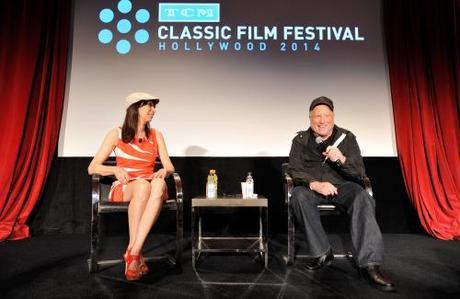
Photo courtesy Getty Images
Richard was very witty. He is a real fan of classic film and mentioned wanting to teach a film history class where students were required to watch many black and white movies. He said his children have only seen a handful of black and white movies and he feels like they are extremely deprived because of it.
As an actor, he admits that he has his limitations. He declared that he’s not an actor like Charlton Heston, who could play any century; that he can only really play “a 20th century, Upper West Side Jew.” However, he really enjoys playing characters who are on the hunt for something. Before starting American Graffiti, George Lucas gave him the choice between playing Curt or Terry (who ended up being played by Charles Martin Smith). He chose Curt because Curt was really seeking something and he knew the movie covered a pivotal night for Curt that he would remember for the rest of his life.
The discussion about Close Encounters was particularly interesting. Roy Neary was a role he really wanted to play and he had to keep after Spielberg to get the part. It wasn’t until Richard told Spielberg that Roy needed to be played by a child, not an adult. Spielberg gave Richard the part on the spot after that. Richard said he knew from the beginning Close Encounters would be a timeless film because “it was noble from birth.” At one moment, Richard got very emotional because Roy’s son Toby was played by Richard’s nephew, Justin Dreyfuss. Tears started welling up in his eyes as he talked about working with his nephew and needed a moment to regain his composure. “I cry at the drop of a hat. Please don’t drop any hats,” he told the audience.
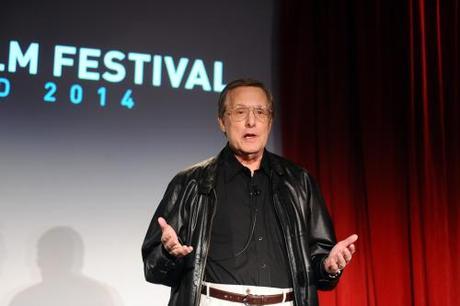
Photo courtesy Getty Images
I stuck around Club TCM after Richard Dreyfuss for the conversation with director William Friedkin (The Exorcist, The French Connection). I specifically decided to stay for this event because I didn’t really know anything about William Friedkin and wanted to learn more. Eddie Muller of the Film Noir Foundation hosted the discussion and the rapport between him and Friedkin was extremely fun to watch.
Despite being the director of two of the best movies to come out of the 1970s, Friedkin seems quite down to earth about how influential his movies are. When Muller said something about The French Connection being a groundbreaking film, Friedkin seemed pretty dismissive of that statement and proceeded to name several other movies he thought were more groundbreaking (The Birth of a Nation, if you disregard the subject matter; Citizen Kane; Breathless; Easy Rider; and Star Wars.)
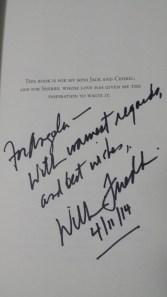
Originally, I had planned to stick around for the conversation with Quincy Jones, but by then it was about 5:00 PM and I hadn’t eaten anything since breakfast. Since I did not want the reputation of being “that woman who passed out in front of Quincy Jones,” I decided to skip it and get dinner instead. At dinner, I ran into K.C. of A Classic Movie Blog and Laura of Laura’s Miscellaneous Musings and we headed over to next movie, Why Worry?, together. In line, we met up with Aurora from Once Upon a Screen and had fun waiting for our chance to see Harold Lloyd’s classic on the big screen with a brand new score being premiered by composer Carl Davis.
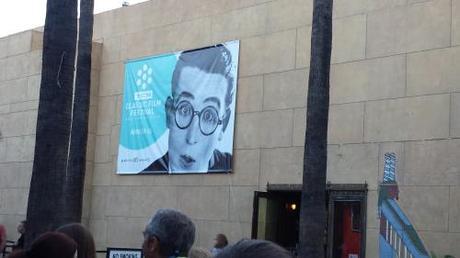
I had seen Why Worry? before, but it had been long enough that I didn’t remember it very well. However, it was my first time seeing a Harold Lloyd movie on the big screen, which is why I was so eager to make it to this one. Why Worry? was introduced by Leonard Maltin and Harold Lloyd’s granddaughter Suzanne Lloyd. There is absolutely nothing quite like seeing a silent comedy on the big screen and being part of a large crowd of people who are all totally into the movie and are laughing hysterically. Seeing a silent movie with live music accompaniment is always a real joy, especially when it’s being conducted by someone as legendary as Carl Davis. The orchestra was so flawless it was often easy to forget that it was live music. The standing ovation he received at the end was well deserved.
